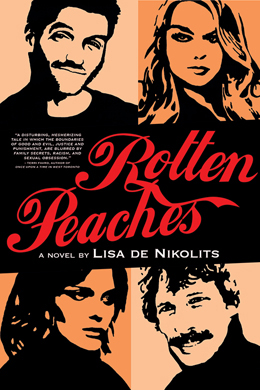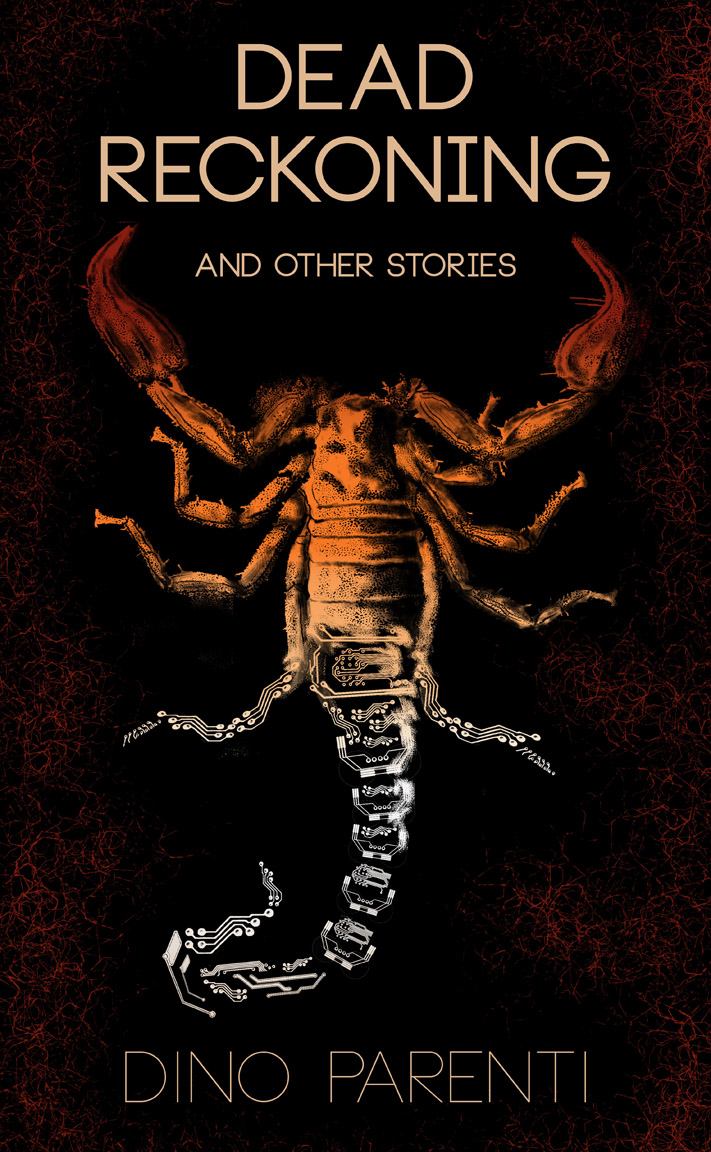
This week on The Scariest Part, my guest is Lisa de Nikolits, whose newest novel is Rotten Peaches. Here is the publisher’s description:
Rotten Peaches is a gripping epic filled with disturbing and unforgettable insights into the human condition. Love, lust, race and greed. How far will you go? Two women. Two men. One happy ending. It takes place in Canada, the U.S. and South Africa. Nature or nurture. South Africa, racism and old prejudices — these are hardly old topics but what happens when biological half-siblings meet with insidious intentions? Can their moral corruption be blamed on genetics — were they born rotten to begin with? And what happens when they meet up with more of their ilk? What further havoc can be wreaked, with devastating familial consequences?
And now, let’s hear what the scariest part was for Lisa de Nikolits:
It’s 3a.m. in the morning. I am alone on a farm in South Africa, three hours north of Johannesburg. Three armed men are on their way to rape and kill me. They are armed with knives, hammers and metal pipes. They aren’t wearing balaclavas or trying to hide their faces in any way.
They have planned this down to the last detail, the lock on the panic room door is destroyed, the bolt rendered useless.
No one knows I am here. I came back without thinking or planning. I returned to my childhood home in haste and anger and I will pay the price with my life.
That’s a scene from Rotten Peaches. And you might think it was the scariest part to write but it wasn’t. It gave me goosebumps for sure and I felt every blow of the battle as if I were there and I was filled with utter exhaustion when it was over.
But I had faith in my protagonist to hold her own — in that instance.
Rotten Peaches has two protagonists and they are both damaged and dangerous women. Bernice and Leonie. There’s not much that scares them but at certain points of the book, they both lose control of their actions and that, for me, was the scariest part to write.
Being in a dangerous situation is one thing but when you are emotionally weakened and you let things slide away from you — well, that’s what scares me!
Bernice, protagonist #1, is conned out of a million bucks by her no-good lover. She’s down in the dumps (understandably!) and she decides to leave town. She’s drinking in an airport hotel bar and the barman asks her if she’d like to party and, on a whim, reckless and angry, she agrees.
She leaves with him in his broken down car, with no idea of where they are going. She smokes a joint and the world starts to spin out of control. They get to the party, a wild affair with fires burning in oil drums and naked people leaping in and out of the pool, with palm trees swaying in the wind and she takes more drugs, spurred by her anger. She wants to punish those who have hurt her by hurting herself even more. She loses sight of the bartender and she ends up alone. How will she get back to her hotel? This is Johannesburg, you don’t just call a cab. Plus she has lost her purse with her phone. She is surrounded by a bunch of drunk strangers and she’s stoned out of her mind. She is at her most vulnerable.
Leonie, protagonist #2, is betrayed by her lover. He left her to marry a sugar granny and her heart is broken. Leonie works the trade show circuit, selling cosmetics. She’s also a kleptomaniac with a penchant for self-medicating and she takes one too many Xanax to drown out the pain of having to see her lover with his new wife. Hardly able to walk, she accepts a security guard’s offer to escort her to her hotel room.
When there, he tries to rape her. How does she rally? I don’t want to give the game away!
I guess those are my own worst fears — that I could end up in one of those situations. One generally associates those sorts of things happening to kids but it can happen just as easily to adults. You get tired, right? You want to let off a bit of steam, or you’re hurt or angry and you just want to escape from reality for a while. But you may suffer devastating consequences.
My writing is all about catastrophic what-if consequences. My novels have been called angst-filled reading and Flare magazine said (of Rotten Peaches) that “you can’t look away” which is exactly my goal! Hook the reader in so that they can’t look away! And if I, the writer, don’t find the scenes scary, then no one else will — I am the first reader who has to be convinced and moved by the power of the prose!
Thank you very much for having me as a guest here today Nick, and I hope readers will enjoy this post!
Rotten Peaches: Amazon / Barnes & Noble / Powell’s / IndieBound / Inanna Publications
Lisa de Nikolits: Website / Facebook
Originally from South Africa, Lisa de Nikolits has lived in Canada since 2000. She has a Bachelor of Arts in English Literature and Philosophy and has lived in the U.S.A., Australia and Britain. No Fury Like That, her seventh novel, will be published in Italian, under the title Una furia dell’altro mondo, in 2019. Previous works include: The Hungry Mirror (winner 2011 IPPY Gold Medal); West of Wawa (winner 2012 IPPY Silver Medal); A Glittering Chaos (winner 2016 Bronze IPPY Medal); The Witchdoctor’s Bones; Between The Cracks She Fell (winner 2016 for Contemporary Fiction); and The Nearly Girl. Lisa lives and writes in Toronto. Her ninth novel, The Occult Persuasion and the Anarchist’s Solution, is forthcoming in 2019.
 Pet Sematary by Stephen King
Pet Sematary by Stephen King



